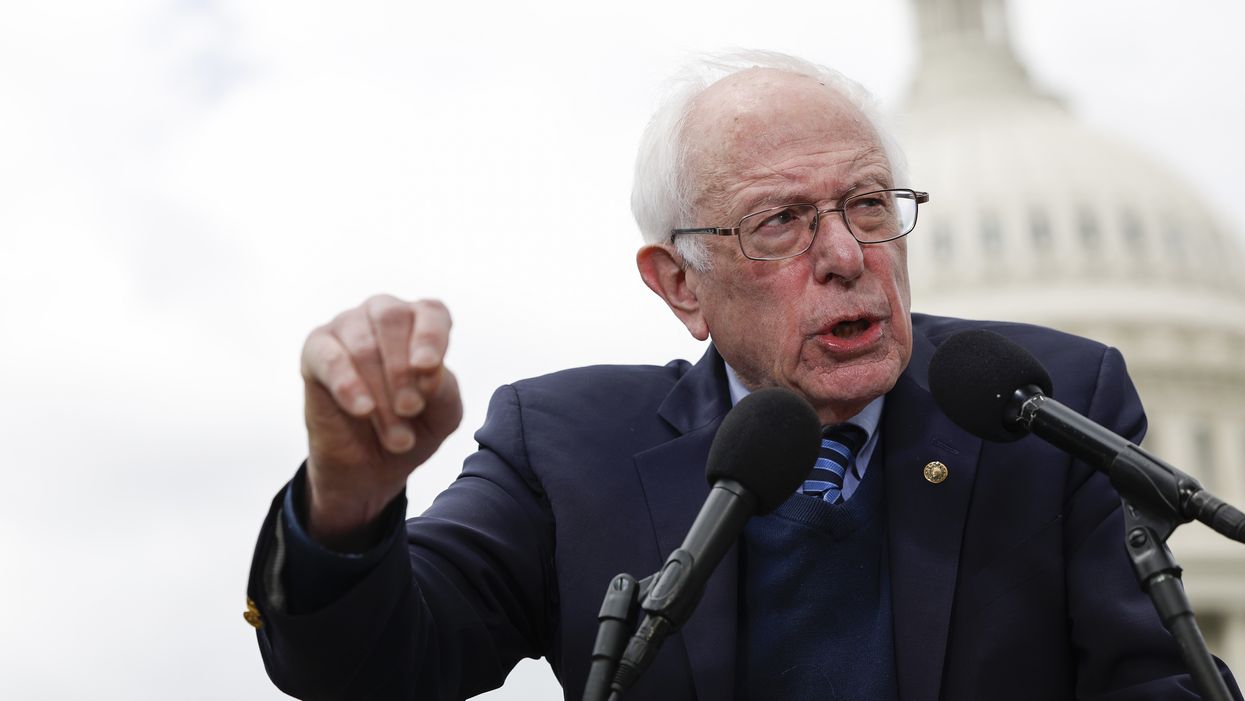Released by Bloomberg Politics on Thursday, the results of the new surveys--conducted between June 19-22--are the most recent to show Sanders closing the substantial lead once held by the former secretary of state. The polling in Iowa was conducted by the West Des Moines-based Selzer & Co., and in New Hampshire, the work was performed by Washington-area Purple Strategies in cooperation with Saint Anselm College. The results, reports Bloomberg, indicate a "substantive and symbolic support for the socialist, as well as a craving among some Democrats for a Clinton rival to rise."
Though Clinton's overall lead remains substantial, survey details show his message is making a positive impression on those exposed to it. Namely, Sanders appears to be enjoying a much more significant portion of genuine support, with people giving him higher points for being "authentic." This is borne out on the ground, where there appears to be a real difference in the enthusiasm surrounding Sanders. As Common Dreams has reported, people attend his rallies in large numbers and respond positively once they hear from him on specific policies.
According to Bloomberg:
In Iowa, Clinton leads Sanders 50 percent to 24 percent, and in New Hampshire, 56 percent to 24 percent. That's a six- to eight-point increase in his support since those states were polled by Bloomberg Politics and partners in May.
With nearly identical support in Iowa and New Hampshire, the polls suggest Sanders' rise isn't just because he enjoys New England neighbor-state status. In both states, he gets higher marks than Clinton on authenticity and willingness to take on Wall Street and financial elites.
Along the campaign trail, Sanders appears to be changing some minds: His unfavorable rating in Iowa is just 4 percent, down 8 percentage points since May. At the same time, 57 percent now view him positively, up 10 points from the last poll.
"You can make the case that a certain amount of Bernie Sanders's support is a protest vote, but there's more to it than that," said J. Ann Selzer, president of Selzer & Co. "People like him. They like what he stands for. They like showing up at his events and hearing him say things they believe in."
Previous polling in New Hampshire showed Clinton with a much narrower lead, but the overall trend has consistently favored Sanders gaining ground.
Responding to the campaign's continued rise in the polls, Sanders' chief political strategist Tad Devine told Bloomberg the latest numbers fit with what he's sensing on the campaign trail. "It's tremendous progress that he is making with voters in the first two states," he said. "It's something we felt on the ground."
Meanwhile, for those who think U.S voters would never send an avowed socialist to the White House, new numbers from Gallup are dispelling those myths--showing increased support for the "S-word" among those likely to cast a ballot. As Marc Daalden reports for In These Times on Wednesday:
A new Gallup poll shows that 47 percent of Americans would consider voting for a socialist candidate. Gallup has been polling Americans on their voting preferences for candidates of different backgrounds since 1937, but this year was the first time they inquired about socialism.
When broken down on party lines, a socialist candidate would earn the consideration of 59 percent of Democrats, 49 percent of Independents, and only 26 percent of Republicans. Overall, socialism charted the lowest of all the backgrounds referenced in the poll. Atheist and Muslim candidates ranked second- and third-lowest among the American populace, at 58 and 60 percent respectively.
This poll comes less than two months after Bernie Sanders announced his candidacy, becoming the first self-described socialist (with at least a decent chance of winning) to do so in more than a decade.
Advocates for Sanders argue that the Gallup poll is misleading for a number of reasons. While Americans may disapprove of a socialist candidate, they
strongly support policies that Sanders stands for. Fifty-two percent support a redistribution of wealth through heavily taxing the rich, for example--the highest number that Gallup has seen since first asking that question in 1940. And 63 percent of Americans believe that the current distribution of wealth in the US is unfair.
Part of the reason for this dissonance is confusion among the America population as to what the word "socialism" even means. Many often associate it with the authoritarian Communism of the Soviet Union instead of the social democracies of modern-day Scandinavian countries, which Sanders strongly backs.
Even though the number of voters who say they would consider voting for a socialist candidate is below an outright majority, the fact that the number of Americans who
would consider voting for a socialist is at 47 percent, in a country with a long history of vicious red-baiting, seems to suggest that Americans aren't as afraid of the word "socialist" as many on the Right would like them to be.
What continues to appear as Sanders' most vital characteristic is his ability to deliver that "authentic" populist message to voters who are eager to discuss issues like low wages, economic inequality, global climate change, the troubling and outsized role of money in politics, and the continued dominance of Wall Street over Main Street. As an op-ed by Sanders on Wednesday argued, "It is time to say loudly and clearly that corporate greed and the war against the American middle class must end. Enough is enough!"
In addition to polls proving that Sanders is resonating with voters in places where he has been steadily campaigning, popular culture also gave Sanders a vote of confidence this week when the online comedy website Funny or Die posted this video, which offered a light-hearted look at how Sanders' message of economic disparity and Wall Street greed was being received by the ever-important "youth vote."

